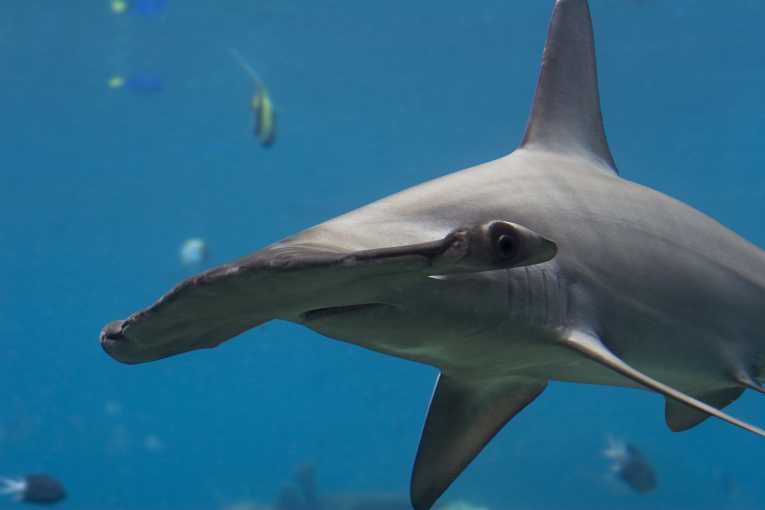A new report has expressed concern about the future of the world's shark populations despite a decade of conservation work.
The document, produced by TRAFFIC, the wildlife trade monitoring network, and the Pew Environment Group, has been released ahead of a meeting of the United Nation's Committee on Fisheries, taking place from 31st January to 4th February in Rome, Italy.
Released in Washington, America, the report suggests that a decade after members of the United Nations Food and Agriculture Organization approved an international plan to conserve sharks, it has yet to be fully implemented.
TRAFFIC and the Pew Environment Group says that with 30 per cent of shark species now threatened or near threatened with extinction, there is little evidence that the plan has contributed significantly to improved conservation.
The Future of Sharks: A Review of Action and Inaction, the report says that only 13 of the top 20 shark-catching countries have taken the management and conservation measures they agreed to in 2001.
The 20 countries account for more than 640,000 tonnes annually, nearly 80 per cent of total shark catch reported globally. The top ten are named in the report as Indonesia, India, Spain, Taiwan, Argentina, Mexico, Pakistan, United States, Japan, and Malaysia.
Worldwide, shark populations are in decline due to unregulated fishing, much of it to meet the high demand for fins. Up to 73 million sharks are killed annually primarily for their fins, which are used as an ingredient in shark fin soup, a popular dish in many East Asian countries.
Glenn Sant, TRAFFIC's Global Marine Programme Leader, said: “The fate of the world's sharks is in the hands of the Top 20 shark catchers, most of whom have failed to demonstrate what, if anything, they are doing to save these imperiled species. They need to take action to stop the decline in shark populations and help ensure that the list of species threatened by overfishing does not continue to grow.”
Jill Hepp, Global Shark Conservation manager for the Pew Environment Group, the conservation arm of the Pew Charitable Trusts, said: “Sharks play a critical role in the ocean environment. Where shark populations are healthy, marine life thrives; but where they have been overfished, ecosystems fall out of balance. Shark-catching countries and entities must stand by their commitments and act now to conserve and protect these animals.”
Image © Ian Scott










